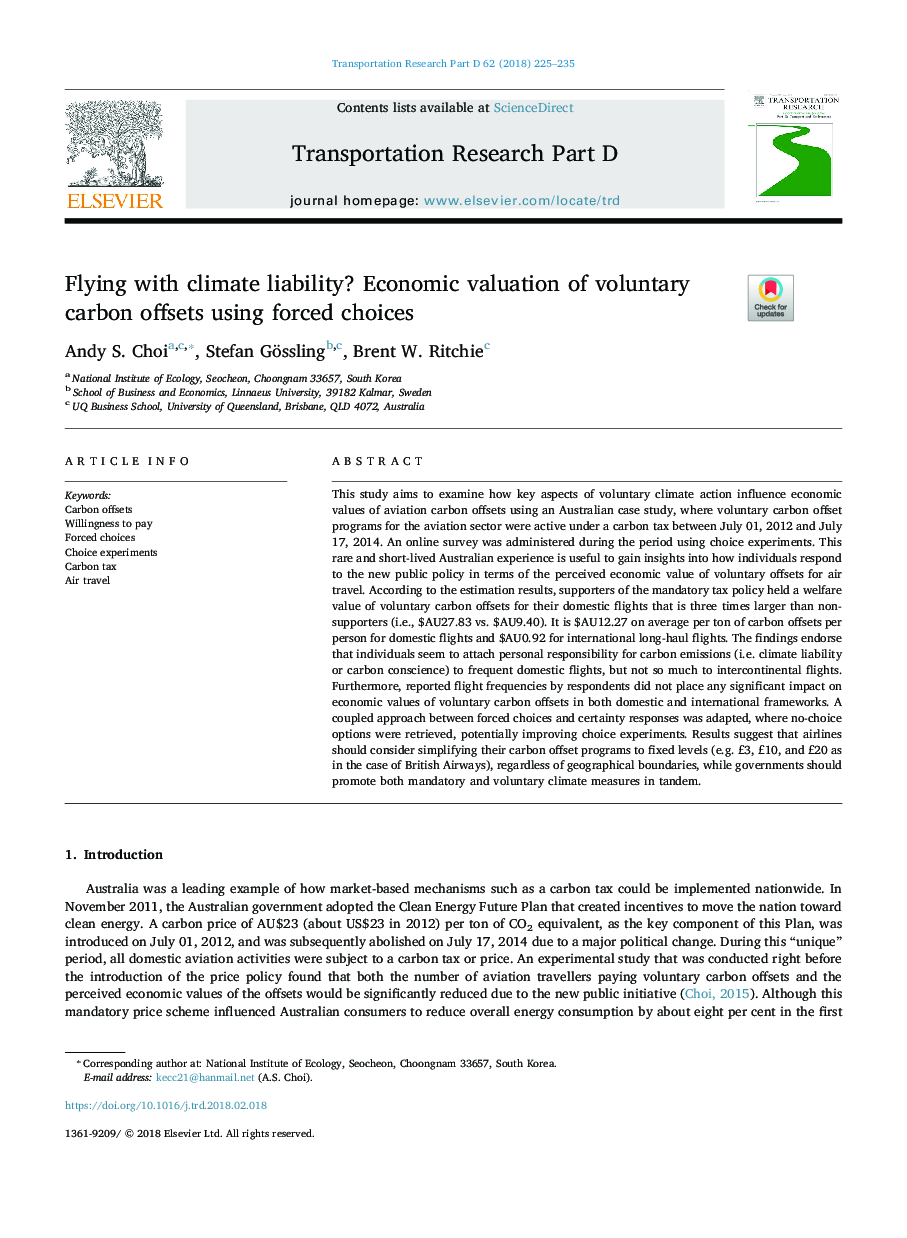| Article ID | Journal | Published Year | Pages | File Type |
|---|---|---|---|---|
| 7498729 | Transportation Research Part D: Transport and Environment | 2018 | 11 Pages |
Abstract
This study aims to examine how key aspects of voluntary climate action influence economic values of aviation carbon offsets using an Australian case study, where voluntary carbon offset programs for the aviation sector were active under a carbon tax between July 01, 2012 and July 17, 2014. An online survey was administered during the period using choice experiments. This rare and short-lived Australian experience is useful to gain insights into how individuals respond to the new public policy in terms of the perceived economic value of voluntary offsets for air travel. According to the estimation results, supporters of the mandatory tax policy held a welfare value of voluntary carbon offsets for their domestic flights that is three times larger than non-supporters (i.e., $AU27.83 vs. $AU9.40). It is $AU12.27 on average per ton of carbon offsets per person for domestic flights and $AU0.92 for international long-haul flights. The findings endorse that individuals seem to attach personal responsibility for carbon emissions (i.e. climate liability or carbon conscience) to frequent domestic flights, but not so much to intercontinental flights. Furthermore, reported flight frequencies by respondents did not place any significant impact on economic values of voluntary carbon offsets in both domestic and international frameworks. A coupled approach between forced choices and certainty responses was adapted, where no-choice options were retrieved, potentially improving choice experiments. Results suggest that airlines should consider simplifying their carbon offset programs to fixed levels (e.g. £3, £10, and £20 as in the case of British Airways), regardless of geographical boundaries, while governments should promote both mandatory and voluntary climate measures in tandem.
Related Topics
Life Sciences
Environmental Science
Environmental Science (General)
Authors
Andy S. Choi, Stefan Gössling, Brent W. Ritchie,
